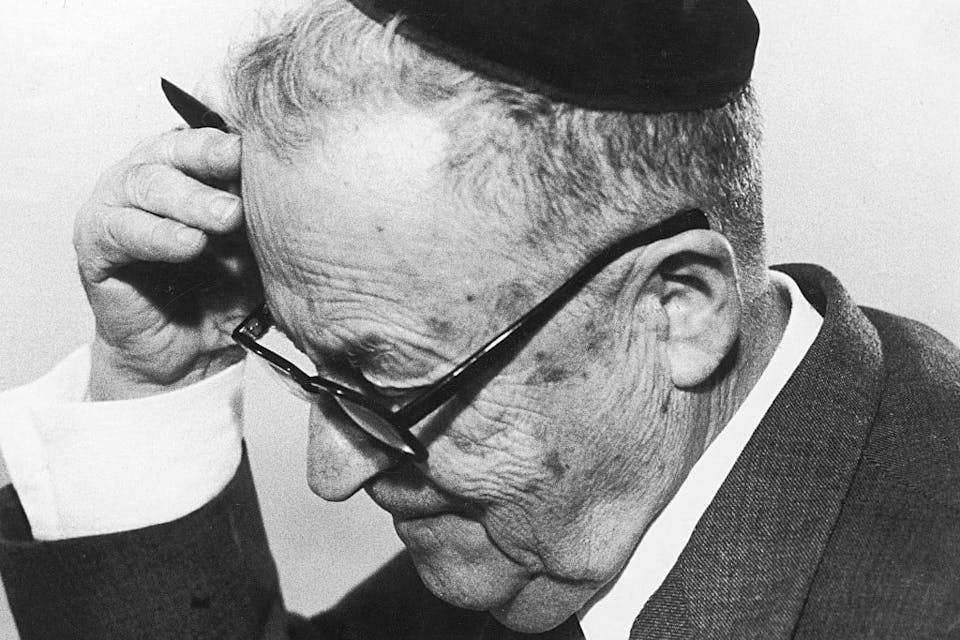
January 5, 2019
Filling the Artistic Void
Admiration for Judaism is inherent in Israeli high culture.
In 1966, the word went forth from Stockholm that Shmuel Yosef Agnon was to receive the Nobel Prize in Literature, the first Israeli to be so honored. Journalists, and the Swedish Consul, excitedly assembled at Agnon’s home in Jerusalem to mark the moment. According to the New York Times, Agnon has an unusual reason for feeling “special pleasure” at the prospect of receiving the prestigious prize from the hands of the Swedish king. The Talmud, he explained, prescribes that a specific blessing be pronounced in the presence of a monarch. “There is a special benediction one says before a king, and I have never met a king,” he reflected. The closest he had come was “once when the Emperor Franz Joseph was being visited by kings [and] I was splattered by mud when the carriages went by.”
It was an odd comment, unless one understood how important the texts and liturgy of halachic life were for this Orthodox Jewish writer. In his Nobel address, Agnon, true to his word, began by pronouncing the obligatory blessing, and then he spoke about what rabbinic writings meant to him. “Who,” Agnon asked, “were my mentors in poetry and literature?”
First and foremost, there are the Sacred Scriptures, from which I learned how to combine letters. Then there are the Mishna and the Talmud and the Midrashim and Rashi’s commentary on the Torah. After these come the Poskim—the later explicators of Talmudic Law—and our sacred poets and the medieval sages, led by our Master Rabbi Moses, son of Maimon, known as Maimonides, of blessed memory.